Crafting drives almost everything in Dying Light: The Beast. Weapons, throwables, medicine, and upgrades all depend on a short list of components you’ll pull from bodies, buildings, and the wilds of Castor Woods. If you know what each material is used for and where it typically spawns, you can keep your workbench humming instead of running dry mid‑mission.
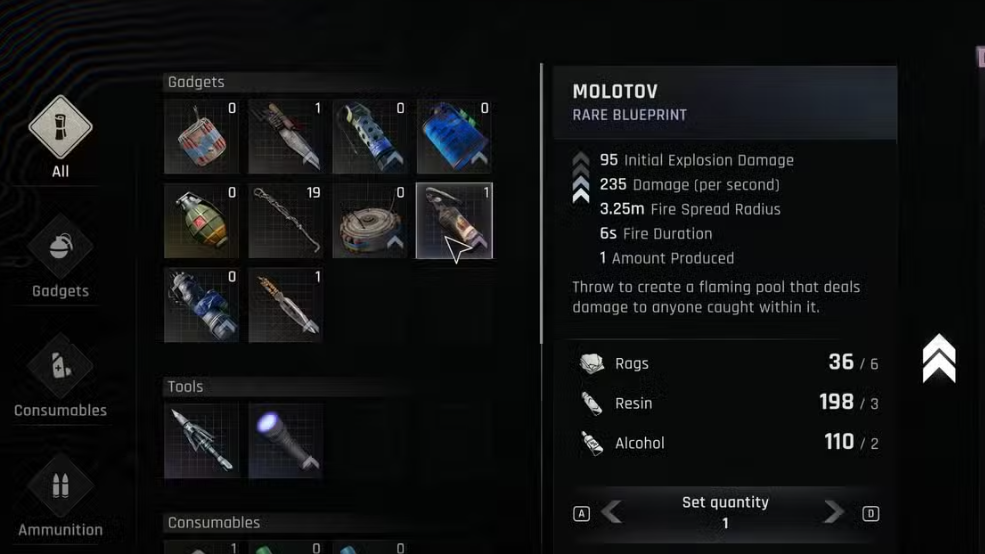
Crafting and rarity tiers
Materials come in three tiers—Common, Rare, and Epic—and their spawn locations are predictable once you learn the patterns. Common parts populate everyday spaces like kitchens, tool stores, and groves (outdoor areas). Rare parts skew toward pharmacies, bathrooms, and electrical shops. Epic parts are tied to vehicles and firearms.
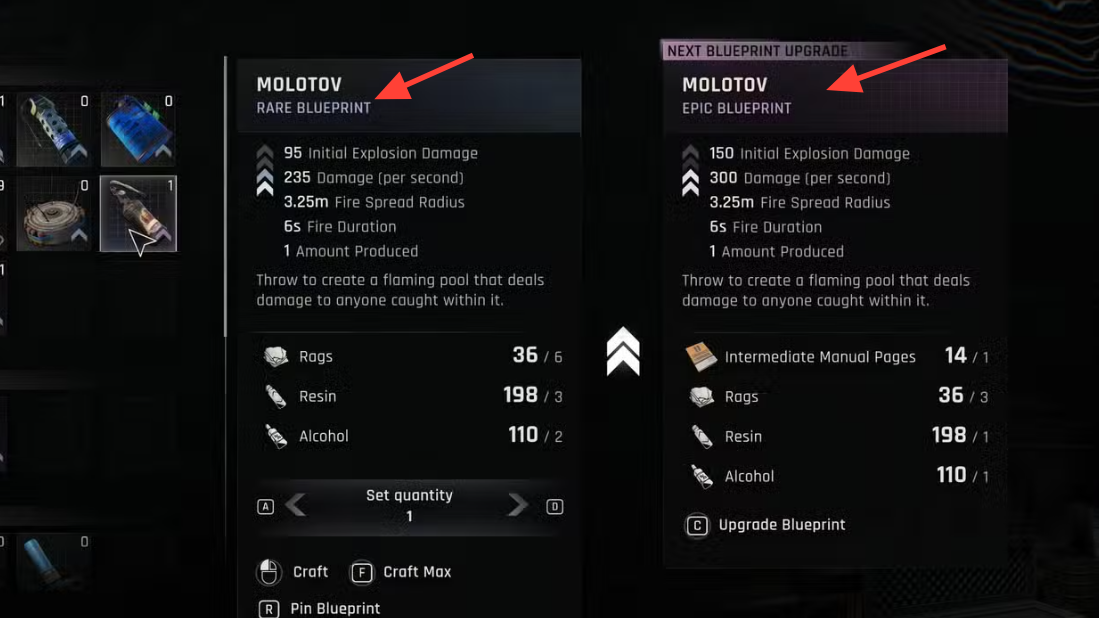
Weapons and mods slot directly into this loop: melee crafting leans on Blades, Weights, Leather, and Scraps; ranged ammo needs Feathers; explosives and elemental mods pull from Electrical Parts, Wiring, Resin, and specific chemicals.
Early-game material priorities (what to make first)
- Hunting Bow and arrows: The first ranged option is craftable at the initial workbench. If you’re short on parts, the Town Hall trader can cover gaps. Arrows unlock alongside the bow and are easy to restock as long as you keep Feathers and Scraps flowing.
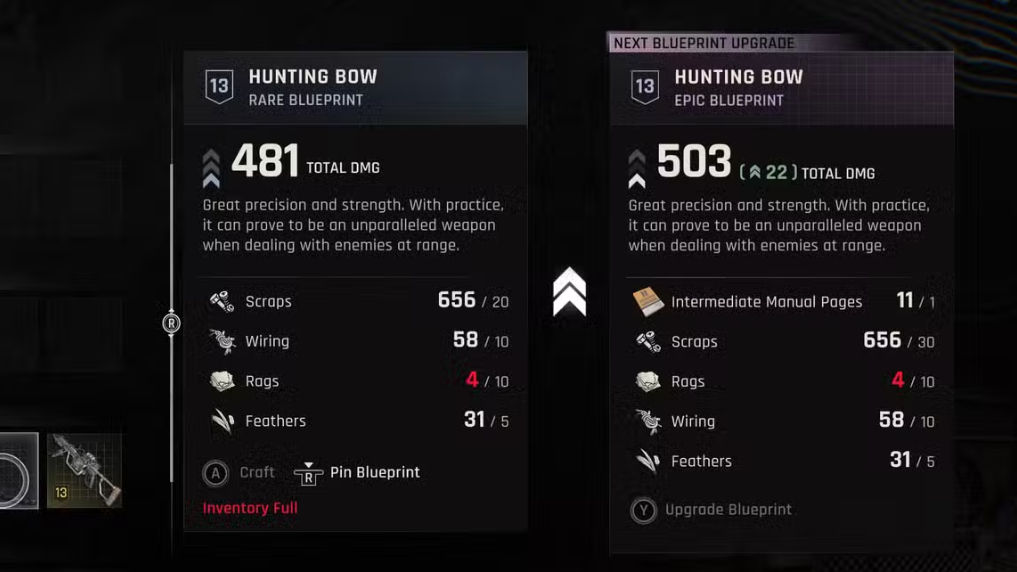
- Reliable healing: Upgrade the Bandage blueprint as soon as you collect Manual Pages in early Dark Zones. Faster application and stronger heals keep you upright as stamina costs and damage spikes ramp up. Other sensible early upgrades: Hand Grenade, Throwing Knives, and the UV Flashlight.
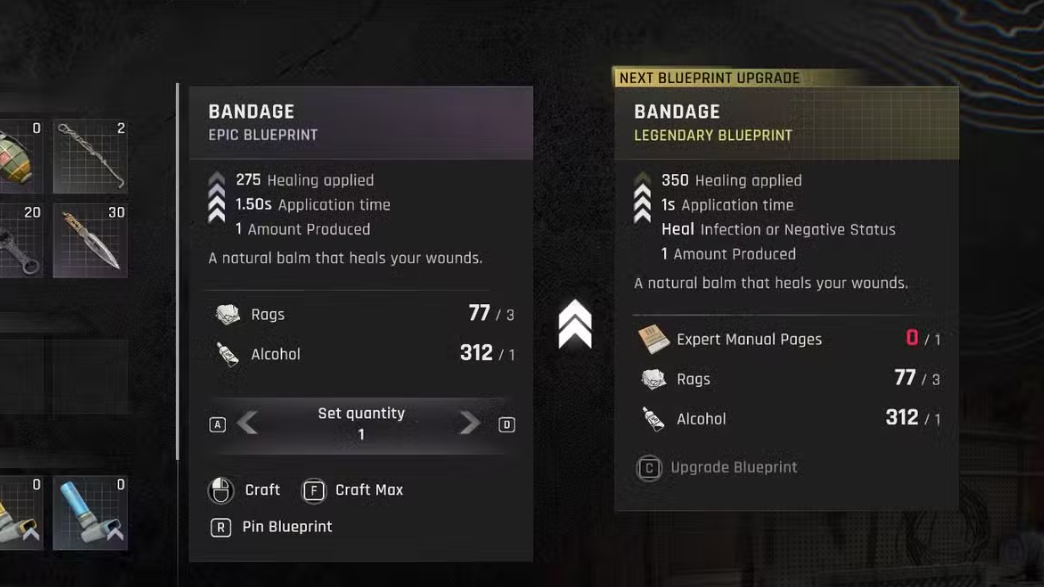
- Armor while you scavenge: Heavy Vest and Heavy Trousers are strong early pickups and buy you time to loot in tougher areas without blowing through healing stock.
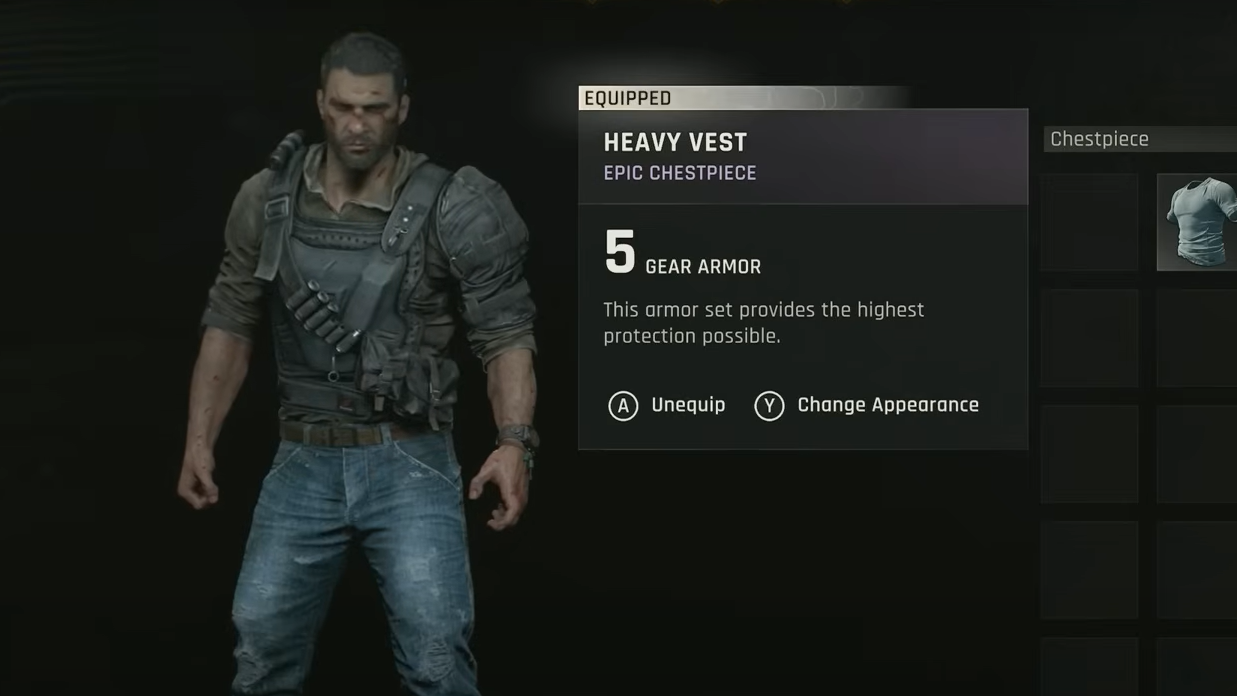
Complete list of crafting materials (uses and where to find)
| Material | Rarity | Primary uses | Where to scavenge |
|---|---|---|---|
| Alcohol | Common | Medicine, throwables | Enemy loot, general stores |
| Blades | Common | Weapon crafting, weapon repair | Toolboxes, tool stores |
| Cans | Common | Throwables | Kitchens, general stores |
| Chamomile | Common | Boosters | Groves (outdoor areas) |
| Electrical Parts | Common | Explosives, weapon mods | Electrical devices, electrical stores |
| Feathers | Common | Arrows, bolts | Groves, fashion/vanity stores |
| Honey | Common | Boosters | Groves |
| Lavender | Common | Boosters | Groves |
| Leather | Common | Weapon crafting | Enemy loot, fashion/vanity stores |
| Pigments | Common | Weapon mods | Bathrooms, pharmacies |
| Rags | Common | Medicine, weapon mods | Enemy loot, fashion/vanity stores |
| Resin | Common | Throwables, weapon mods | Groves, pharmacies |
| Scraps | Common | All crafting, frequent repairs | Enemy loot, tool stores |
| Weights | Common | Weapon crafting, weapon repair | Toolboxes, tool stores |
| Wiring | Common | Explosives, weapon mods | Electrical devices, electrical stores |
| Battery | Rare | Weapon mods (e.g., electrical effects) | Electrical devices, electrical stores |
| Cleaning Supplies | Rare | Weapon mods | Kitchens, general stores |
| Cordyceps | Rare | Boosters | Groves |
| Oxidizers | Rare | Weapon mods | Bathrooms, pharmacies |
| Poppy | Rare | Boosters | Groves |
| Fuel | Epic | Flamethrower ammo, gas grenades | Car wrecks, gas stations |
| Gun Parts | Epic | Firearm crafting and enhancement | Dismantling firearms, vendors |
Where to reliably farm common bottlenecks
Some parts constantly run short. These are the best patterns to refill them quickly:
- Scraps: Everywhere, but hardware/tool stores and Dark Zones deliver in bulk. Use extras to keep worn melee weapons operational.
- Rags: Show up on human enemies and inside vanity/fashion stores. Stockpile for medical crafting and certain mod recipes.
- Wiring and Electrical Parts: Hit electrical stores and loot devices; you’ll need both for explosives and elemental mods.
- Resin and Pigments: Check pharmacies and bathrooms. Resin feeds throwables and mods; Pigments gate specific mod lines.
- Cans and Alcohol: Kitchens and general stores are dense with cans; alcohol appears in the same shops and on enemies for bandages and Molotov‑type crafts.
- Feathers: Combine grove runs with vanity store loops. Keep a cushion for arrows and bolts so your bow stays viable.
- Herbs and fungi (Honey, Lavender, Chamomile, Cordyceps, Poppy): Sweep groves—any outdoor, plant‑heavy area. These power boosters and are easy to overlook in thick brush, so pan your camera slowly.
- Batteries and Cleaning/Oxidizing agents: Batteries come from electrical devices/shops; Cleaning Supplies from kitchens and stores; Oxidizers from bathrooms and pharmacies. All three unlock stronger mod effects.
- Fuel: Siphon from vehicles and check gas stations when you’re preparing flamethrower ammo or gas grenades.
- Gun Parts: Dismantle spare firearms or buy from vendors. Human enemies frequently drop guns—loot before you leave the area.
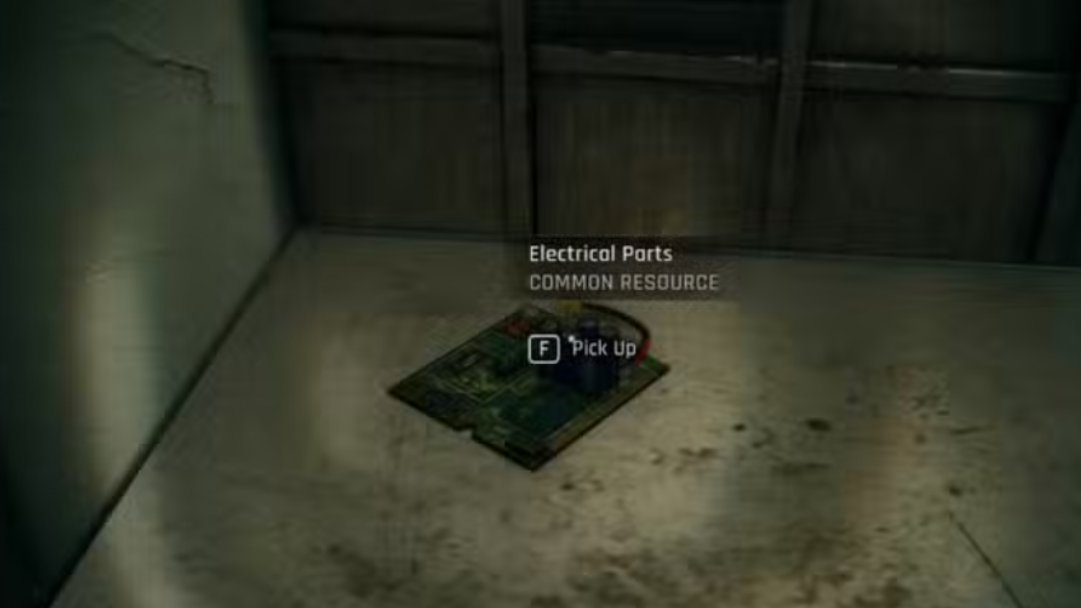
Weapon mods, explosives, and ammo at a glance
- Weapon mods: Electrical Parts, Wiring, Batteries, Pigments, Cleaning Supplies, and Oxidizers make up the backbone for elemental and stat‑tuning attachments.
- Explosives and throwables: Cans and Resin show up repeatedly in grenade and decoy recipes; Wiring and Electrical Parts support more advanced explosives.
- Melee upkeep and builds: Blades and Weights pair with Leather and Scraps for crafting and repair across one‑handed, two‑handed, and long weapon archetypes.
- Ranged sustain: Feathers keep arrows and bolts flowing; Gun Parts are required for crafting or enhancing firearms.
- Area control: Fuel is mandatory for flamethrower ammo and gas‑based grenades.
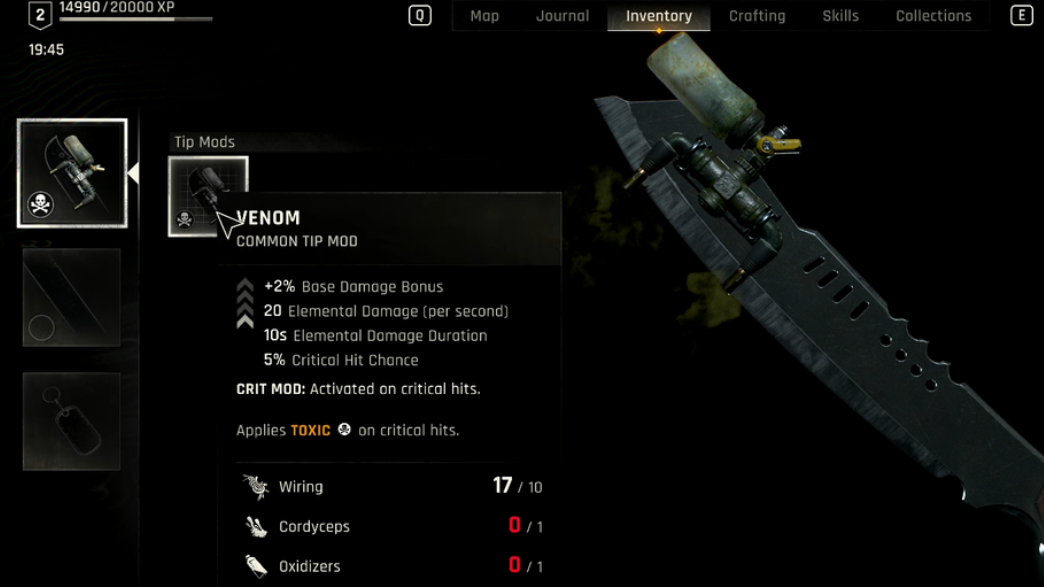
Upgrade the blueprints you use most
Manual Pages found in Dark Zones upgrade blueprints, reducing costs and improving performance. Prioritize Bandages first, then round out staples like Throwing Knives, Hand Grenades, and the UV Flashlight. Upgrading early stretches your material stockpile further and trims the downtime between fights.
A small, consistent loop—one electrical store, one pharmacy, one vanity store, and one grove—will feed most crafts without detours. Keep a short shopping list before you set out, check traders when a rare part holds up a build, and break down extra firearms for Gun Parts instead of sitting on dead weight. The right resources make Castor Woods far less hostile.

